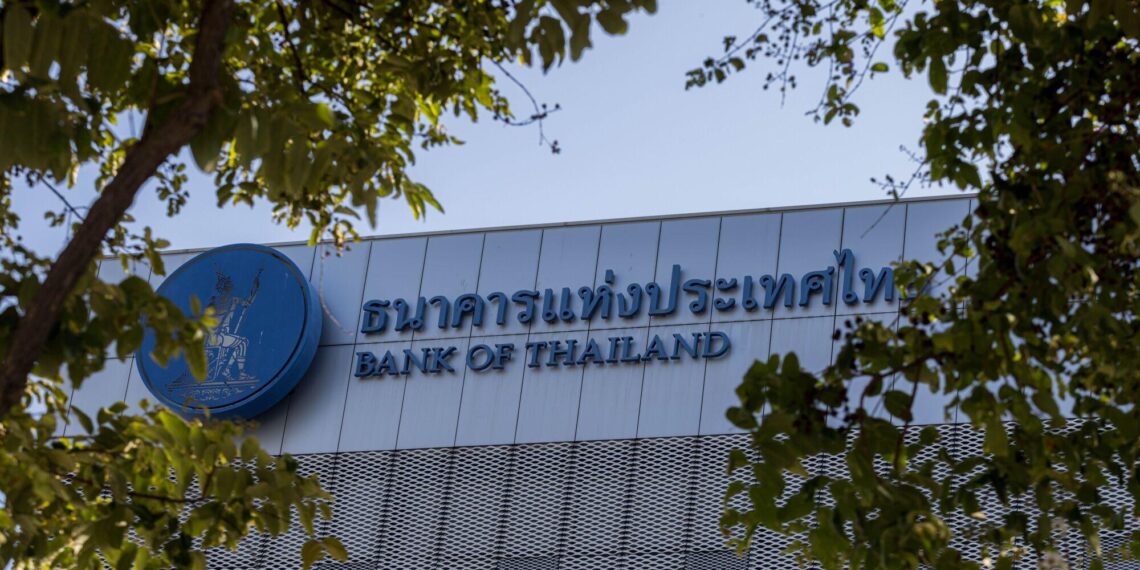Thailand’s central bank maintains a flexible inflation target of 1-3%, crucial for medium-term price stability amid supply-side fluctuations, despite government pressure for a higher range to allow for easier monetary policy.
The Bank of Thailand’s Monetary Policy Committee (MPC) has reaffirmed its commitment to maintaining price stability within the economy by supporting an inflation target of 1-3%. This target range, which has been in place for the year 2023, continues into 2024 as a medium-term goal to ensure sustainable economic growth and financial stability.
The MPC’s decision is rooted in a flexible inflation targeting regime, which balances the primary objective of medium-term price stability with the need to support the economy’s full potential growth and preserve financial stability. The target was mutually agreed upon by the MPC and the Minister of Finance and is seen as a cornerstone for anchoring inflation expectations, even amidst periods of fluctuation.
The committee believes that a flexible target range is crucial for maintaining medium-term price stability, particularly as the Thai economy faces increasing relative price changes due to supply-side fluctuations and structural factors. This stance contrasts with the government’s desire for a higher inflation target, which would allow for monetary easing.
Despite recent negative inflation, the MPC argues that this doesn’t indicate deflation and that the subdued prices could even help alleviate the cost of living for low-income households. They expect inflation to return to the target range by the end of the year and to stabilize at the lower bound.
The BOT has kept borrowing costs at a decade-high 2.5% since September 2023, and while the governor has stated a willingness to adjust borrowing costs as needed, maintaining policy space for unexpected risks remains a priority. The government and the BOT are scheduled to meet later this month to set the inflation target for 2025. This meeting will be closely watched by market participants, particularly given the recent calls for a rate cut by the government, which the MPC has so far ignored.
Understanding the Key Factors Affecting Inflation in Thailand
Inflation is a critical economic indicator that reflects the rate at which the general level of prices for goods and services is rising, and subsequently, how it erodes the purchasing power of a nation’s currency. In Thailand, several key factors influence inflation dynamics, shaping the country’s economic landscape.
- Global Demand and Oil Price Shocks: As a country that imports a significant amount of its energy needs, Thailand is susceptible to global oil price fluctuations. Changes in global demand can lead to oil price shocks, which directly impact the cost of energy and, by extension, the prices of various goods and services.
- Government Policies: Fiscal measures and monetary policies play a pivotal role in controlling inflation. Government spending, taxation, and the central bank’s interest rate policies can either curb or fuel inflationary pressures.
- Consumer Spending and Employment Levels: The spending habits of consumers and the overall employment rate affect demand for goods and services. High levels of consumer spending and employment can lead to increased demand, pushing prices up.
- Disposable Income and Wage Levels: When households have higher disposable income, their capacity to spend more increases. If wage levels rise faster than productivity, it can lead to higher consumption and demand-pull inflation.
- Supply Chain Disruptions: Issues such as pandemics or geopolitical tensions can disrupt supply chains, leading to shortages and higher costs for raw materials and finished goods, which can contribute to inflation.
- Exchange Rate Volatility: As a country with a managed float exchange rate regime, Thailand experiences the impact of exchange rate movements on import and export prices, which can influence inflation.
- Monetary Policy Effectiveness: The Bank of Thailand’s monetary policy, especially its management of interest rates, plays a crucial role in influencing inflation expectations and keeping inflation rates within the target range.
In conclusion, inflation in Thailand is the result of a complex interplay between global and domestic factors. Understanding these dynamics is crucial for policymakers, businesses, and consumers alike, as they navigate the challenges and opportunities presented by inflationary trends. For a more detailed analysis, readers can explore various economic reports and research papers that delve into the intricacies of Thailand’s inflation dynamics.
Discover more from Thailand Business News
Subscribe to get the latest posts sent to your email.














